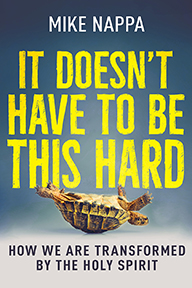|
Getting your Trinity Audio player ready...
|
It Takes Less Than A Minute To Reject Your Work.
I make it my goal to reject every book proposal you send me in 60 seconds or less.
This includes book ideas that come in my email box. Books that are hand-delivered to me at a writer’s conference. Manuscripts recommended by a friend of a friend who knew somebody who told them I was in the publishing business. If you’ve got a book you want to publish, and you send it to me, well … Chances are very good that I will reject your proposal in under a minute.
The sad part about this goal of mine is that it’s remarkably easy to accomplish. Too easy, in fact.
Over the last few decades I’ve worked as an acquisitions editor for four publishing houses. I’m also the founder and Chief Literary Agent of Nappaland Literary Agency. I regretfully admit to you now that in that time I’ve issued thousands and thousands of those hated rejection letters. In all shapes and forms. To well-meaning and talented writers just like you.
I’ve looked an eager author in the eye and said, “I’m sorry, but I’m not interested in publishing your book.” I’ve sent countless rejection emails. My agency’s used several variations on form letters. I’ve even experimented with that stupid “checklist” rejection where a dozen reasons for declining are listed on the page; then all I have to do is put an “X” next to the right insult for you. (“Your book doesn’t meet our quality standards.” “We are not able to project a significant interest for your book.” And so on.)
Now, before you label me as some sort of sadist toward the struggling masses of writers out there…
…you should also know that I’m an author myself. In fact, I’ve published (as author or co-author) over 60 books. My books have sold more than a million copies worldwide. They’ve won awards, been translated into various foreign languages, and all kinds of good stuff like that.
What that really means is this:
• In my career, I’ve happily received 60+ acceptance letters or phone calls about my book ideas. (Yay me!)
• At the same time, by my best estimates, I’ve also personally received over 3,000 rejections for my book ideas. (Ouch!)
And yes, I’ve had to sit stone-faced while some arrogant jerk of an editor looked me dead in the eye and said, “I’m sorry, but I’m not interested in publishing your book.” I’ve received countless emails. Several variations on form letters. Even some of those stupid “checklist” rejections where a dozen reasons for declining are listed on the page. (All the contemptuous editor had to do was put an “X” next to some random insult for me!)
So, you could say that for the past few decades I’ve been a successful author, editor, and literary agent. And you could also say during that time I’ve successfully failed at being an author, editor, and literary agent.
And that’s what 77 Reasons Why Your Book Was Rejected is about. Learning why we fail—and then turning that knowledge into success the next time around.
I think Craig Ferguson, former host of the Late Late Show on CBS, sums it up best. “We prepare for glory,” he says, “by failing until we don’t.” That rings true in the life of a professional writer. Still, failure by itself is of no benefit. It’s just another disappointing circumstance in life. However, failure with knowledge gained … well, that’s something completely different.
So, with that (and you) in mind, I’ve culled over 20 years of my experience as a publishing industry professional and compiled it for you here. I’ve boiled it all down to 77 Reasons Why Your Book Was Rejected (and how to be sure it won’t happen again.) It’s my hope that you’ll find this little tome insightful and helpful. And most of all, maybe it’ll be something that’ll give you what you need to get past your last rejection and move on to your rightful place of book publishing glory.
How to Use 77 Reasons Why Your Book Was Rejected
Just so you know, I’ll be wearing both my “acquisitions editor” and “literary agent” caps while we chat in the pages here. So if I say something like “when you send me your proposal…” you can assume that “me” in that sentence refers to both “me-the-generic-acquisitions-editor” and “me-the-generic-literary-agent.” I’m making myself your stand-in for those roles. If something is editor-specific or agent-specific, I’ll let you know. Otherwise assume everything applies to both of those people.
Also, as you read 77 Reasons Why Your Book Was Rejected, you can start at the beginning and work your way to the end. (It makes the most sense that way). Or you can feel free to skip around to check out the sections that catch your interest first. (It works just fine that way too.)
The point is not necessarily the order in which you read it, but the relevant information you gather as you read. So relax, knock yourself out, and jump in. Just imagine that you and I are sitting around having coffee and a conversation, talking over the finer points of your last book proposal. (And hopefully you’re buying the coffee!)
Now, Before We Begin…
Of course, there are just a few things you do need to know before we get started with the 77 Reasons Why Your Book Was Rejected.
First, foremost, and always, there is actually only one overarching reason why any book is published—or rejected:
Profit.
That’s it, really.
Remember, publishing is an industry—a business that has at its core the innate desire for economic survival. And, as for any business, survival means profit. A publishing house that doesn’t actively pursue profitability—no matter how noble or sublime its content goals—simply won’t be publishing books for very long. Those are just the facts of this capitalist system we’ve embraced. (And which gives us all the opportunity to succeed beyond our wildest dreams!).
So, no matter what book you’re currently pitching, you must always keep the idea of profit front and center:
- Remove your “fuzzy focus” lenses.
- Coldly determine what factors influence your publisher’s profit potential.
- Position your book’s content and market features to highlight profit potential.
- Propagandize your book’s proposal to hammer home that profit potential for the publisher. (More on this later.)
The Publish/Reject Decision
Next, you need to be aware of how the “Publish/Reject” decision is made in a publishing board meeting.
Yes, many people weigh in on that decision. That includes the acquisitions editor (your first gatekeeper), and an editorial director. A marketing manager or two, and a salesperson or two. A print buyer. Sometimes a reader or team of readers, and maybe even an employee’s nephew or girlfriend or husband or whatever. But in the end, when it’s time for the publishing board to decide whether or not to invest in your book, only three voices count:
- the Publisher,
- the VP of Marketing, and
- the VP of Sales.
Oh I know. You’re already arguing with me. “What about the acquisitions editor?” you say. “What about the VP of Editorial? Certainly those people have a say in the publishing decision, right?”
The honest answer (and I’m sorry to be the one to break it to you…I know this is going to piss off many editorial folks out there): Not so much.
You see, the acquisitions editor makes the initial rejection based on what that person thinks his or her Publisher, Sales VP, and Marketing VP will approve later in publishing board. If the acquisitions editor doesn’t see your book getting a nod from those three executives, the book gets rejected up front.
If an editor does take your book proposal into the Publishing Board meeting, he or she gets no vote on whether it gets published.
That’s because the primary purpose of any editorial presence at publishing board (acquisitions or executive) is simply as an advocate for whatever book is being presented. The editor and/or VP of Editorial have to literally sell their colleagues on your book.
Sometimes this almost feels like used-car hucksterism, with trinkets or gimmicks to capture everyone’s attention. (I once knew of an editorial team that dressed up as pirates to pitch a book for their publishing board!). Your editors have to pitch your book to their customers (Publisher, Marketing, Sales). They must deftly disarm or deflect any objections, and then ask for the sale—for the company to open its checkbook and buy your book.
Fact is, despite his or her ardent efforts on your behalf, the acquisitions editor doesn’t even get to vote in publishing board. He or she is only there as a guest, given a three- or four-minute window to advocate your book. (No wonder editors are often such irritable people!)
And yes, the VP of Editorial is usually given a vote, but that vote is also—almost always—simply a lockstep opinion with whatever the Publisher (the VP of Editorial’s boss) has already decided.
I’ve worked in acquisitions for four different publishing houses now, and I’ve sat in many, many publishing board meetings. In all that time I’ve never seen a Publisher and VP of Editorial split their votes. If the Publisher and VP of Editorial happen to disagree on a book, they typically work it out between them until they can present a united front. And if they can’t work it out, the Publisher always overrules the VP of Editorial. That’s just the way it works. Sorry.
So, if you want to publish a book, you need to convince the Publisher, the VP of Marketing, and the VP of Sales that your book is worth it.
If you can win over those three people, then not much is going to stand in the way of publishing your book. If you win only two of the three, then your odds drop to about 50/50. The VP of Sales will almost always carry more weight in publishing board than the VP of Marketing. But he or she will often have to defer to the Publisher.
Still, if the sales department says they can’t sell your book—no matter how much the marketing department says they’ll promote it—then most Publishers won’t take the risk. They’ll side with the sales team and send your book packing. I’ve only seen a Publisher override a sales team once in 20+ years … so I guess it can happen. But it’s terribly rare. (Oh, and by the way, that Publisher was right—the book sold four times as many copies as the sales team projected!)
At any rate, your wisest course of action is simply to set up your proposal so that there are no dissenters among those three executives.
Which, of course, is easier said than done.
Again, hopefully this book will help you with that. To that end I’ve organized it in three sections:
- Editorial Reasons for Rejection;
- Marketing Reasons for Rejection; and
- Sales Reasons for Rejection.
If you can eliminate (or at least diminish) the reasons listed in each section, then you are well on your way to publishing success. (IMHBAO.)
One Last Warning
One last warning before we go further: I will always be honest with you in this book. Sometimes that may make you angry with me. I apologize in advance … but please don’t take it personally. I’m just trying to help you by sharing from my 20+ years of experience in publishing.
It’s fine with me if you disagree with what I’m saying, if you discover that your experience has been different from mine. I don’t even mind if you put a giant red “X” through any page you dislike. But hopefully you’ll still find this information helpful—and profitable—for your writing career.
All right…Are you ready?
Grab a pen. (So you can write notes in the margin, or draw the aforementioned giant “X.”) Give yourself permission to dog-ear any pages you want to come back to later. (Hey, it’s your book.) And…
Let’s get started.
Best!
Mike Nappa
Read Now: Reason #01 – Your Writing is Crap
Looking for more? Check out these links:







